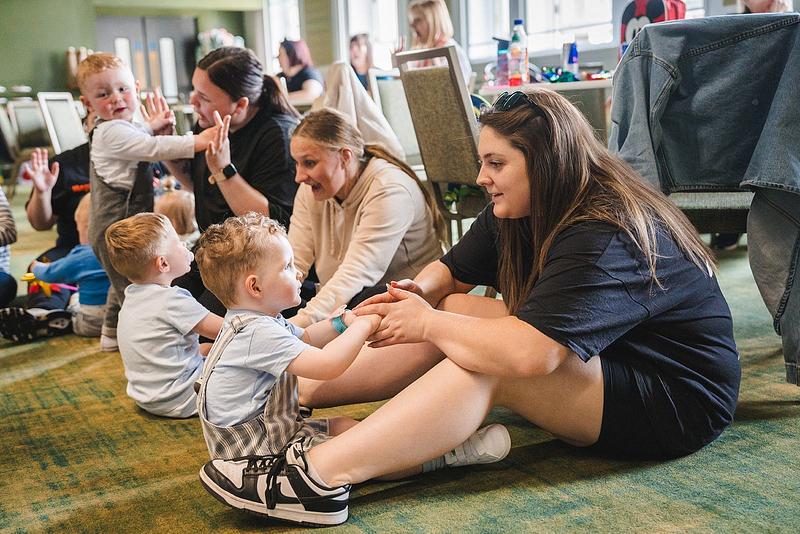Looking for more in Reading and Stories?
Tips for sharing songs and rhymes
There’s no right or wrong way to share songs and rhymes – the most important thing is to have fun together. Here are some tips to get you started, but see what works best for you and your family.

Getting Started
It’s very normal to feel silly when you first start to share songs and rhymes with your little one. The most important thing to remember is that you have the best voice for your child. Your child will never judge your singing ability – they will be delighted that you’re spending the time singing, dancing and having fun with them.
You could try using songs and rhymes throughout the day as a way to establish your routines. Gentle tickling rhymes like 'This Little Piggy' are good at nappy changing time and songs like 'Five Little Ducks' are perfect for bath time.
If your baby is feeling sleepy or restless then a calming song may help to settle them. And if it’s time for play, you could start with some action-packed songs that get little ones moving about and active.
Whatever you’re looking for, find inspiration for songs and rhymes to share with your little one in our Bookbug Song and Rhyme Library. You can also download our free Bookbug app(this link will open in a new window) to share songs and rhymes on the go, look up the words or make up your own songs or rhymes to our instrumental versions.
Tips for sharing songs and rhymes
Making songs and rhymes part of your everyday routine is one of the easiest but most important ways to help your baby learn and develop. Here are a few top tips to keep in mind:
- Sing or say the rhyme clearly and slowly – give children a chance to join in.
- Add some actions or movement - this can be simple like wiggling fingers or gently bouncing, or more active like walking in a circle.
- Try some songs and rhymes while you and your child are face to face. Your child will love seeing what you’re doing! Face to face interaction also helps support social and emotional development.
- Children’s voices are still developing and they will find it easier to sing along to songs that are pitched a bit higher than where most adults sing. Try to sing in the same pitch as if you were using a baby talk voice. Watch the video below for more information.
- If you want to try something different, you can hum different songs and rhymes. This is also a great way to help calm and soothe a child to sleep.
- Children love repetition! You can mix it up by doing songs or rhymes louder and quieter or faster and slower.
- Make up your own words or add your own verses to a familiar song or rhyme. Children love to giggle so have fun – the sillier the better!